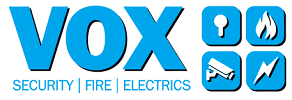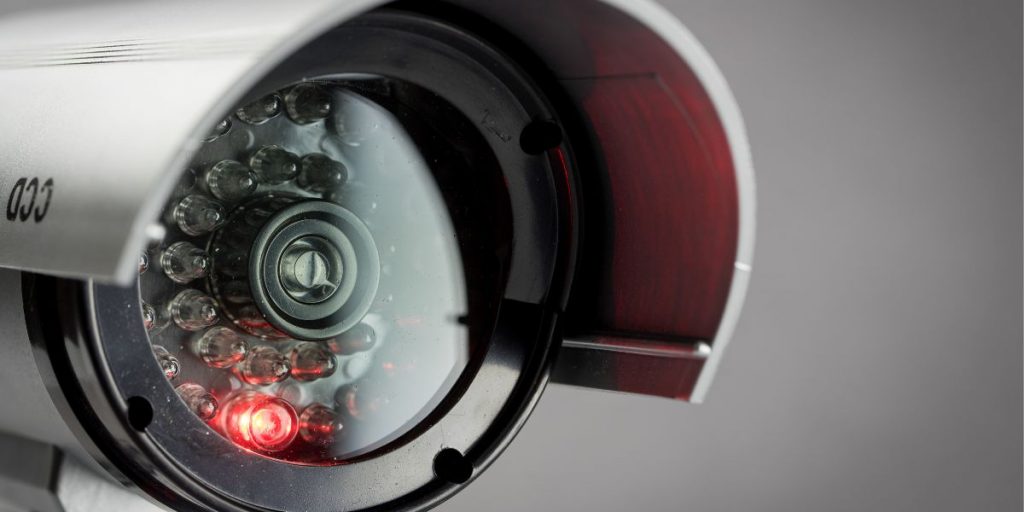Did you know that there are an estimated 770 million CCTV cameras worldwide, with around 100 million in the United States alone? These numbers highlight the widespread use of surveillance technology and the impact it has on our daily lives.
But as you go about your day, have you ever stopped to consider the potential privacy concerns that come with these cameras? From the balance between security and privacy to the ethical considerations surrounding the use of facial recognition technology, there are numerous aspects to explore.
So, let’s dive into the world of CCTV cameras and unveil the complexities that lie beneath the surface.
Role of CCTV Cameras
The role of CCTV cameras in society is crucial, as they serve as essential tools for detecting and deterring criminal activity. These surveillance systems play a significant role in crime prevention by deterring potential offenders. The presence of CCTV cameras in public spaces acts as a deterrent, as individuals are less likely to engage in criminal behavior when they know they’re being watched. This deterrence effectiveness contributes to maintaining public safety and reducing crime rates.
Moreover, CCTV cameras aid in suspect identification, which is vital for post-crime investigation. The captured footage can be used as evidence to identify individuals involved in criminal activities. This not only helps in solving crimes but also assists law enforcement agencies in apprehending suspects efficiently.
The effectiveness of CCTV cameras in enhancing public safety and assisting in post-crime investigations is evident. They provide valuable evidence that can be used in court proceedings, leading to convictions and justice for victims. Furthermore, the presence of surveillance cameras can deter criminals from targeting specific areas, making communities feel safer.
Regulation and Compliance
Regulating the placement and use of CCTV cameras is crucial to address privacy concerns and ensure compliance with data protection laws. Regulatory oversight is necessary to monitor and enforce the proper use of surveillance technology. Data protection is a key aspect that needs to be considered when implementing CCTV systems. Compliance monitoring plays a vital role in ensuring that organizations adhere to surveillance regulations and adhere to privacy standards.
Privacy impact is a significant concern when it comes to CCTV cameras. The ability to capture and store personal information raises questions about the potential invasion of privacy. It’s essential to strike a balance between the need for security and the protection of individual privacy rights.
Surveillance regulations, such as the Surveillance Camera Code of Practice, provide guidelines for the ethical and lawful use of CCTV systems. Privacy Impact Assessments and CCTV Usage Policies help organizations assess the potential privacy implications and develop appropriate safeguards.
To ensure compliance with data protection laws, it’s crucial to have effective regulatory oversight. This oversight can help identify any breaches of privacy and take appropriate action to rectify them. By implementing robust regulatory mechanisms, organizations can demonstrate their commitment to protecting individuals’ privacy while using CCTV cameras for legitimate purposes.
Advancements in Surveillance Technology
Advancements in surveillance technology have revolutionized the capabilities of video surveillance systems, enhancing their effectiveness in crime prevention and investigation. These advancements have brought about significant changes in the field of surveillance, with several key developments shaping the landscape of modern surveillance.
- Data Analysis: The integration of data analysis techniques has allowed for more efficient and effective monitoring of surveillance footage. By analyzing large volumes of data, surveillance systems can identify patterns, detect anomalies, and provide valuable insights for crime prevention.
- AI Integration: Artificial intelligence has played a crucial role in enhancing the capabilities of surveillance systems. AI algorithms enable real-time video analysis, facial recognition, and predictive analytics, making surveillance more proactive and accurate in identifying potential threats.
- Smart City Development: Surveillance technology has become an integral part of smart city development. By integrating surveillance systems with other IoT devices and infrastructure, cities can enhance public safety, optimize resource allocation, and improve overall quality of life.
- Facial Recognition: Facial recognition technology has significantly advanced surveillance capabilities. It allows for the rapid identification of individuals, aiding in criminal investigations and enhancing security measures. However, concerns regarding privacy and misuse of facial recognition data have also arisen.
- Privacy Concerns: While advancements in surveillance technology offer numerous benefits, they also raise significant privacy concerns. The widespread use of surveillance systems and the potential for misuse of personal data have sparked debates about the balance between security and privacy in society.
Benefits of Surveillance Cameras
Surveillance cameras have proven to be a valuable tool in enhancing public safety and deterring criminal activities. The benefits of surveillance cameras are numerous and have a significant impact on society. First and foremost, the presence of surveillance cameras enhances security by acting as a deterrent to potential criminals. Knowing that they’re being watched, individuals are less likely to engage in illegal activities, thus reducing crime rates in public spaces. Moreover, surveillance cameras aid in crime prevention by allowing law enforcement agencies to monitor activities and respond promptly to any suspicious behavior.
Another significant benefit of surveillance cameras is the collection of evidence. In the event of a crime, these cameras provide crucial visual documentation that can assist in investigations and the identification of suspects. This evidence is invaluable in court proceedings and contributes to the successful prosecution of criminals. Additionally, surveillance cameras contribute to public safety by monitoring public spaces and ensuring the security of individuals. They provide a sense of security, allowing people to go about their daily lives with confidence.
Furthermore, surveillance cameras play a vital role in criminal deterrence. The knowledge that their actions are being recorded acts as a deterrent to potential offenders, reducing the likelihood of criminal behavior. This not only enhances public safety but also reduces the burden on law enforcement agencies.
Future Trends and Governance
In the realm of surveillance technology, the future trends and governance of CCTV systems are of utmost importance in ensuring the effective implementation and ethical use of these advanced tools.
- Ethical considerations: As surveillance technology continues to advance, it’s crucial to address the ethical implications of using CCTV systems. This includes considering the potential invasion of privacy and the impact on individual rights.
- Policy implications: The development of comprehensive policies and regulations is essential to govern the use of CCTV systems. These policies must address issues such as data retention, access to surveillance footage, and the use of facial recognition technology.
- Technological advancements: With the rapid pace of technological advancements, CCTV systems are becoming more sophisticated. This includes the integration of artificial intelligence, IoT connectivity, and biometric identification. However, careful consideration must be given to the ethical and privacy implications of these advancements.
- Public perception: The public’s perception of CCTV systems plays a significant role in their acceptance and effectiveness. Striking a balance between security and privacy concerns is crucial in maintaining public trust and support.
- Accountability measures: Establishing accountability measures is vital to ensure that those responsible for operating and managing CCTV systems are held accountable for their actions. This includes regular audits, transparent reporting, and clear guidelines for the handling of sensitive data.
Need more help?
If you would like to find out more information about all of our CCTV services available, or have a question about your existing CCTV system you can send us a message or
Give us a call today to find out more 0191 442 2723

